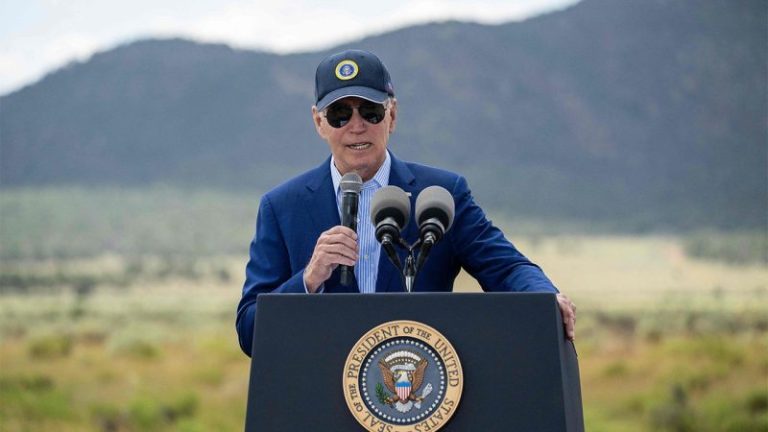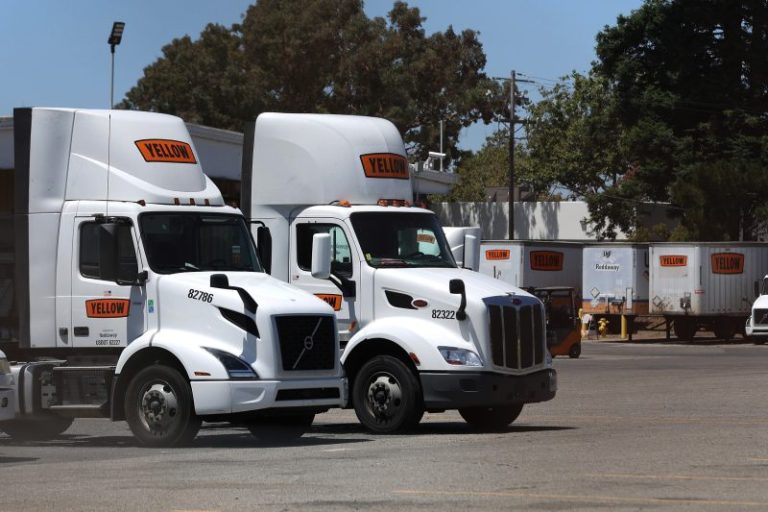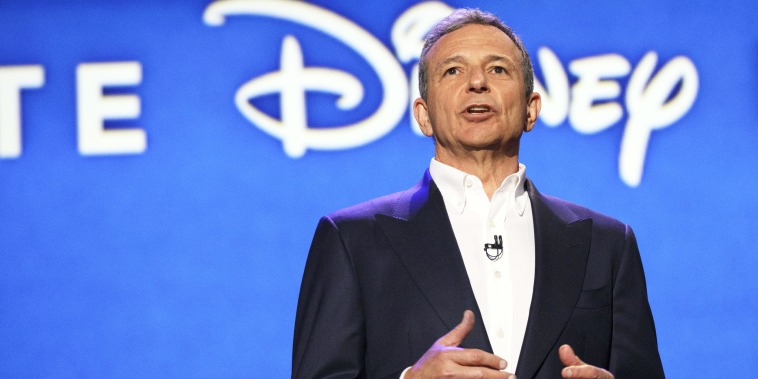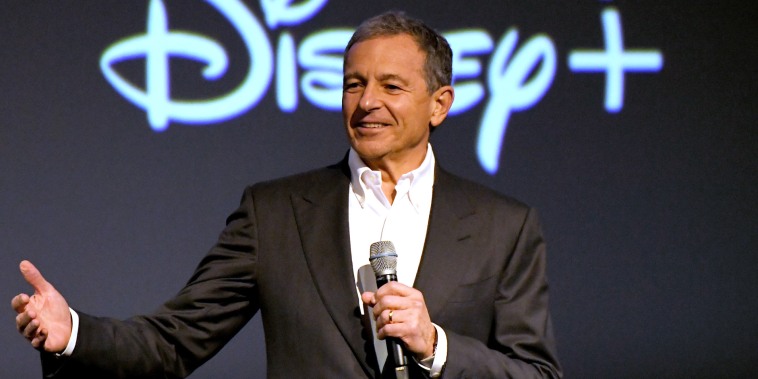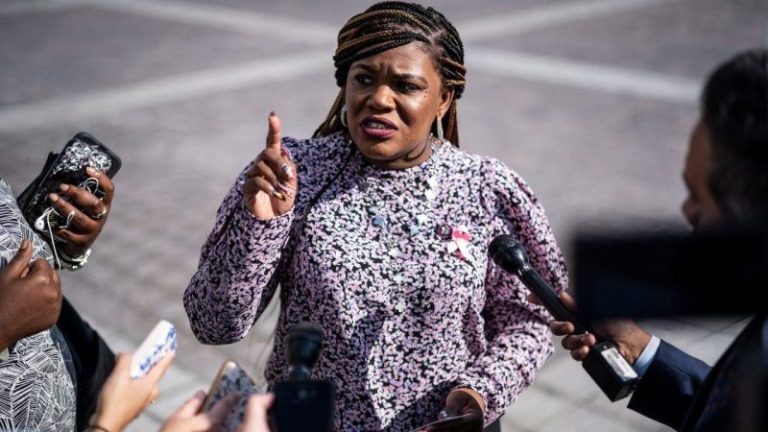President Biden and top administration officials touted actions this week that they argued protect tribal interests, just months after moving to block oil drilling that sustains Native American communities.
On Tuesday, Biden designated the Baaj Nwaavjo I’tah Kukveni — Ancestral Footprints of the Grand Canyon National Monument, blocking off a million acres of public lands for a wide range of uses. The president, Interior Secretary Deb Haaland and Agriculture Secretary Tom Vilsack attended a ceremony later in the day where they remarked the action protects Native American culture.
‘I made a commitment as president to prioritize respect for the tribal sovereignty and self-determination, to honor the solemn promises the United States made to tribal nations to fulfill federal trust and treaty obligations,’ Biden remarked.
‘I’ve pledged to keep using all that available authority to protect sacred tribal lands,’ he continued. ‘My administration has worked alongside tribal leaders, including many of you who are here today, to keep that promise.’
Biden also argued that establishing the Grand Canyon as a national park years ago was a means to ensure Native Americans were denied access to their own land.
Haaland added that the move to designate the lands as a national monument demonstrates the importance of ‘recognizing the original stewards of our public land.’
‘Feeling seen means being appreciated for who we are — the original stewards of our shared lands and waters. It means investing in our people and recognizing the power of Indigenous Knowledge as a key part of collaborative conservation,’ she posted on X following the ceremony.
‘And it means making sure that Indigenous wisdom and perspective informs our decisions, so that together we will usher in a future that our grandchildren deserve to inherit.’
However, in early June, Haaland finalized a ban on fossil fuel leasing within 10 miles of the Chaco Culture National Historical Park located near San Juan County, New Mexico. While she said the move would protect the sacred and culturally significant site, leaders of the nearby Navajo Nation argued it will wreak economic devastation on tribal members who rely on leasing the land for income.
Navajo leaders also warned that the federal government failed to properly consult them on the action. They said Haaland never seriously considered their compromise solution and potentially neglected her legal duty to protect rights of Navajo allottees.
‘I really am emotionally distraught for our constituents that have been impacted by this,’ Brenda Jesus, who chairs Navajo Nation Council’s Resources & Development Committee, told Fox News Digital at the time. ‘The proper government-to-government tribal consultation has never really taken place at all. We’re just really advocating on behalf of our constituents. That wasn’t really considered – tribal sovereignty.’
And Buu Nygren, the president of the Navajo Nation, a federally recognized tribe in the U.S. southwest, said days later that the Navajo Justice Department was considering pursuing litigation against the federal government in response to the move. He lamented the impact it would have on low-income Navajo citizens who depend on revenue from leasing their allotments within ten miles of Chaco Canyon.
Overall, there are currently 53 Indian allotments located in the 10-mile buffer zone around Chaco Canyon, generating $6.2 million per year in royalties for an estimated 5,462 allottees, according to Navajo Nation data. In addition, there are 418 unleased allotments in the zone that are associated with 16,615 allottees.
According to the Western Energy Alliance, an industry group that represents oil and gas producers in the area, Navajo members will lose an estimated $194 million as a result of Haaland’s actions.
The allotments date back to the 1900s, when the federal government awarded them to Navajo citizens as a consolation when the tribe’s territory was downsized.
‘To totally disregard those local communities — it’s unfair,’ Nygren told Fox News Digital. ‘There’s no need to celebrate putting people into poverty, to celebrate undermining the Navajo Nation’s sovereignty, undermining everything that comes into working with tribes, in this case, Navajo Nation.’
In addition, other tribes dependent on oil, gas and coal production have taken aim at the Biden administration for its policies targeting fossil fuel production broadly.
Roughly 20% of the nation’s total oil and natural gas reserves, 30% of domestic coal reserves west of the Mississippi River and additional natural minerals — altogether worth about $1.5 trillion — are on Native American lands, according to a study from think tank Property and Environment Research Center. Still, the vast majority of those resources remain undeveloped.
‘Air, water and energy are so foundational to our economy. I believe in the right that all property owners have to develop what belongs to them in any way that they want,’ Daniel Cardenas, the chairman of the National Tribal Energy Association and a member of the Pit River Tribe, previously told Fox News Digital. ‘That’s why it’s important to fight for. To make sure it doesn’t get taken away.’
‘A war on coal is a war on Crow,’ added Conrad Stewart, the director of energy and water for the Crow Nation of Montana.

